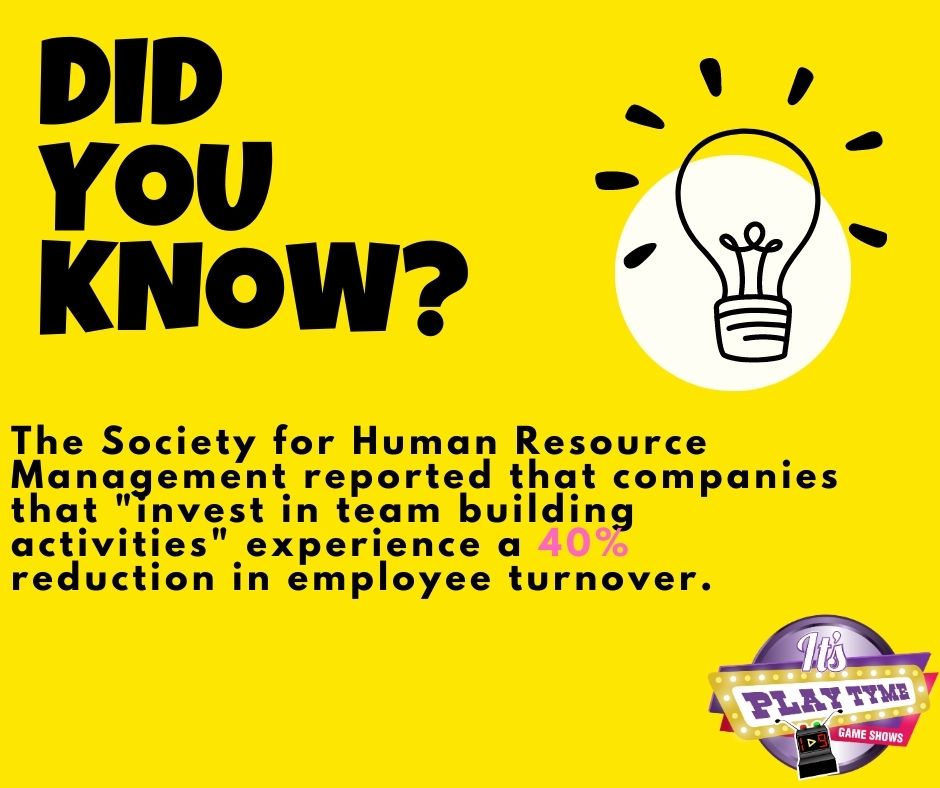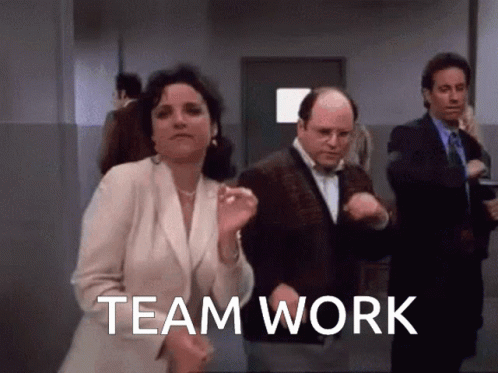Effective team building is crucial for any organization looking to achieve optimal performance and success.
Team building research studies provide valuable insights into the most effective strategies for building and maintaining strong teams.
By leveraging these insights, you can enhance team effectiveness, communication, and collaboration within your organization.
Team building effectiveness is a key area of study for researchers and organizational leaders alike.
In recent years, research studies have highlighted the importance of team building strategies as a means of improving team performance and creating a positive team culture.
These studies have generated valuable insights into the most effective team building techniques and programs that can be utilized to foster stronger relationships and enhance team cohesion.

culture-building-ideas
Uncovering Insights with Team Building Research Studies
Key Takeaways:
- Team building research studies offer valuable insights into effective team building strategies and techniques.
- Effective team building can enhance team effectiveness, communication, and collaboration.
- Creating a positive team culture is crucial for building and maintaining strong teams.
- Research studies have generated insights into the most effective team building programs and exercises.
- Leveraging the insights from team building research studies can help you build stronger teams and achieve greater success.
Understanding the Benefits of Team Building
When it comes to team building, the benefits are numerous. Not only does it improve team dynamics, but it also contributes to team development.
By implementing effective team building techniques, you can foster stronger relationships among team members, improve communication, and enhance collaboration. This, in turn, leads to a more productive and efficient team.
Here are some of the key benefits of team building:
- Improved communication: Team building activities encourage open communication and help team members learn to express themselves more effectively.
- Enhanced collaboration: By working together towards a common goal, team members learn to work collaboratively and support one another.
- Increased productivity: When team members feel connected and engaged with one another, they are more motivated to work harder and achieve better results.
- Boosted morale: Team building activities can be a fun and enjoyable way to boost morale and create a positive team culture.
- Greater creativity: By fostering a culture of collaboration and innovation, teams can generate new ideas and perspectives that can drive growth and innovation.
By prioritizing team building and investing in team development, you can create a more cohesive, engaged, and successful team.
“Team building is the proverbial ‘win-win‘ – it’s good for the individuals involved and great for the team and organization as a whole.” – Stephen Covey
The Role of Team Building Activities and Exercises
Team building activities and exercises play a vital role in promoting team cohesion and fostering a positive team culture.
By engaging in these activities, teams can improve communication, enhance collaboration, and build stronger relationships.
There are various types of team building programs that can be implemented, ranging from outdoor activities such as rock climbing and ropes courses to indoor exercises like trust falls and problem-solving challenges.
Whatever the activity, the goal is to create an environment that encourages teamwork, trust, and mutual respect.
Team Building Activities

Employee turnover
Team building activities can take many forms, but they all share the common goal of bringing team members together to work towards a common objective. Some popular team building activities include:
- Scavenger hunts
- Escape rooms
- Charades
- Board games
- Team sports
These activities can be customized to suit the specific needs of the team and can be used to address issues such as poor communication, lack of trust, or low morale.
Team Building Exercises
Team building exercises are designed to improve specific skills or aspects of teamwork.
These exercises often involve problem-solving challenges that require team members to work together to find a solution. Some examples of team building exercises include:
- Blindfolded obstacle courses
- Trusting exercises
- Goal-setting activities
- Group brainstorming sessions
These exercises can help teams to develop critical thinking skills, improve communication, and enhance collaboration.
Team Building Programs

Teamwork Makes The Dream Work
Team building programs typically consist of a series of activities and exercises designed to achieve specific goals.
These programs can be customized to meet the unique needs of the team and can be delivered over a period of days or weeks. Some examples of team building programs include:
| Program | Description |
|---|---|
| Outdoor Adventures | Team members participate in outdoor activities such as hiking, camping, and white-water rafting. |
| Leadership Development | Team members participate in workshops and exercises designed to develop leadership skills. |
| Virtual Team Building | Team members participate in virtual activities and exercises designed to improve communication and collaboration. |
Team building programs can be highly effective in promoting team cohesion and facilitating long-term team development.
Overall, team building activities and exercises play a crucial role in developing effective teams.
By engaging in these activities, teams can improve communication, build trust, and enhance collaboration, leading to increased team effectiveness and success.

attributes-of-a-great-team-player
Key Findings from Team Building Research Studies
The effectiveness of team building strategies has been extensively researched and documented.
According to a recent study by the Harvard Business Review, teams that engage in regular team building activities are more productive, have better communication, and experience higher job satisfaction rates.
Another study by Deloitte found that effective team building can improve overall company performance by up to 12%.
One of the key findings from team building research studies is the importance of clear communication.
Teams that communicate effectively are more likely to reach their goals and work collaboratively towards a common objective.
In fact, research has shown that teams with high levels of communication outperform those with low levels of communication by a significant margin.
Another important factor in team building effectiveness is trust. Teams that trust one another are more likely to work well together, take risks, and share ideas openly.
A lack of trust, on the other hand, can lead to dysfunction and decreased productivity.
Research has also shown that diverse teams tend to be more effective than homogenous teams.
Diverse teams bring a wider range of perspectives and experiences to the table, which can lead to more creative solutions and better problem-solving.
“Communication is the foundation of effective team building. Without clear communication, teams are unable to function at their full potential.”
Overall, the key findings from team building research studies highlight the importance of clear communication, trust, and diversity in team effectiveness.
By leveraging these insights, teams can improve their overall performance and achieve greater success.

team-building-puzzles
Implementing Effective Team Building Strategies
Now that you understand the benefits of team building and have explored different team building techniques, it’s time to implement effective strategies that will foster a positive team culture and enhance overall team effectiveness. Here are some practical tips:
- Start with clear goals: Define the specific goals of your team building initiative and ensure that they align with the overall goals of the team and organization.
- Choose the right activities: Select team building activities that are engaging, inclusive, and relevant to your team’s needs and interests. Consider factors such as team size, location, and preferences.
- Encourage participation: Create a safe and supportive environment where team members feel comfortable participating in team building activities. Encourage open communication and active listening.
- Facilitate debriefing: After each team building session, facilitate a debriefing process where team members can reflect on their experiences and share feedback. This will help identify areas of improvement and build a stronger team dynamic.
- Measure effectiveness: Use metrics such as team productivity, employee engagement, and team satisfaction to measure the effectiveness of your team building initiatives.
This will help you assess the impact of your efforts and make data-driven decisions for continuous improvement.
Remember, effective team building requires ongoing effort and commitment.
By implementing these strategies, you can create a positive team culture, improve team dynamics, and ultimately achieve greater success for your team and organization.
Got Team Building Games? PRESS PLAY!
![]()
Book a live game show experience today!
Contact us for further details. We come to you..
For Immediate assistance by text – 917-670-4689
No deposit required. 5-star rated on google.
We plan and facilitate all activities.
Maximizing the Impact of Team Building
To maximize the impact of your team building efforts, it’s important to evaluate their effectiveness and measure their impact on team development.
One effective way to do this is by conducting surveys before and after team building activities to gauge team members’ perspectives on team dynamics and identify areas for improvement.
You can also track team progress over time by monitoring key performance metrics such as productivity, collaboration, and employee satisfaction.
This will help you determine whether your team building initiatives are having a positive impact and identify areas where you may need to adjust your strategies.
Continuous Improvement
Continuous improvement is essential for maintaining long-term team cohesion and ensuring that your team remains productive and effective.
This can involve regularly reassessing your team’s strengths and weaknesses, identifying areas for improvement, and developing action plans to address them.
One effective way to do this is by holding regular team meetings to discuss progress, share feedback, and brainstorm new ideas.
Encouraging open communication and collaboration can help ensure that everyone is on the same page and working towards common goals.
Team Development
Remember that team building is an ongoing process and should be integrated into your team’s everyday work environment.
This can involve incorporating team building activities into regular team meetings or brainstorming sessions, as well as providing ongoing training and development opportunities for team members.
Investing in your team’s development can help build stronger relationships, improve communication, and enhance collaboration, ultimately leading to increased productivity and improved team effectiveness.
By focusing on continuous improvement and investing in your team’s development, you can maximize the impact of your team building efforts and build a stronger, more effective team.

game-shows-for-team-building-NYC-METRO
Conclusion
Congratulations on exploring the power of team building research studies and gaining valuable insights into team building effectiveness and strategies.
By applying these key learnings, you can help your team improve their performance and foster a positive team culture.
Remember, team building is an ongoing process that requires continuous evaluation and improvement.
It’s important to measure the impact of team building activities on team development and make adjustments accordingly.
By implementing effective team building strategies, you can create a strong team environment and enhance overall team effectiveness.
So, take action today and start building stronger teams. Use the insights gained from team building research studies to implement effective strategies and techniques.
Evaluate the impact of these initiatives and continuously improve to achieve long-term team cohesion and success.
FAQ – Building Stronger Teams

frequently asked questions
What are team building research studies?
Team building research studies are scientific investigations that focus on understanding the effectiveness of various team building strategies and their impact on team performance.
These studies provide valuable insights into the dynamics of teams and offer evidence-based recommendations for fostering stronger teamwork.
What are the benefits of team building?
Team building offers numerous benefits to teams and organizations. It helps improve communication, enhance collaboration, build trust, foster better relationships, and boost overall team morale and productivity.
Also, team building activities contribute to personal growth, skill development, and a positive work environment.
What role do team building activities and exercises play?
Team building activities and exercises play a crucial role in promoting team cohesion and nurturing a positive team culture.
They provide opportunities for team members to interact, engage in meaningful conversations, and develop mutual understanding and respect.
Additionally, these activities help identify and address team dynamics, strengths, and areas for improvement.
What are some key findings from team building research studies?
Team building research studies have revealed that effective team building strategies can significantly enhance team performance.
Key findings highlight the importance of clear communication, fostering trust, promoting inclusivity, and developing strong leadership within teams.
Furthermore, research has shown that ongoing team building efforts contribute to long-term team cohesion and success.
How can I implement effective team building strategies?
Implementing effective team building strategies involves understanding the unique dynamics and needs of your team.
You can start by setting clear goals, fostering open communication, promoting collaboration.
Organizing team building activities that align with your team’s interests and objectives, and regularly evaluating the effectiveness and impact of these initiatives.
How can I maximize the impact of team building?
To maximize the impact of team building, it is important to regularly assess the effectiveness of your team building efforts.
This can be done through feedback surveys, observing team dynamics, and analyzing performance metrics.
Continuous improvement and ongoing development of team building initiatives are essential to maintain long-term team cohesion and effectiveness.
Why are team building research studies and strategies important for building stronger teams?
Team building research studies offer evidence-based insights into the most effective strategies for building stronger teams.
By leveraging these findings, organizations can enhance team performance, improve collaboration, and create a positive work environment.
Implementing effective team building strategies allows teams to unlock their full potential and achieve greater success.




